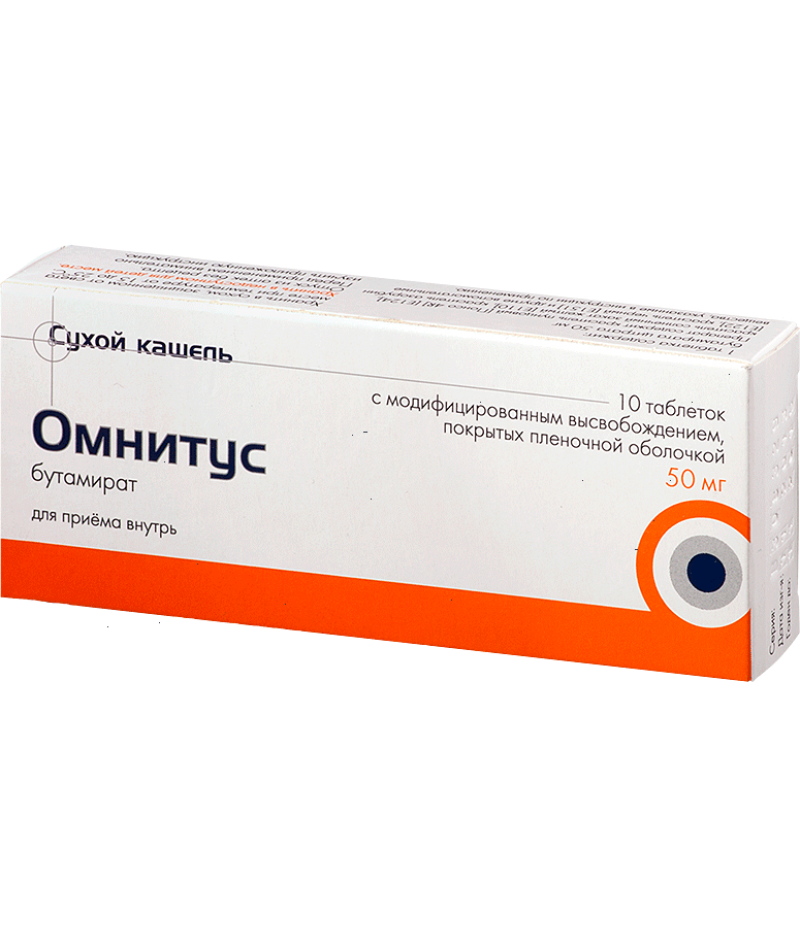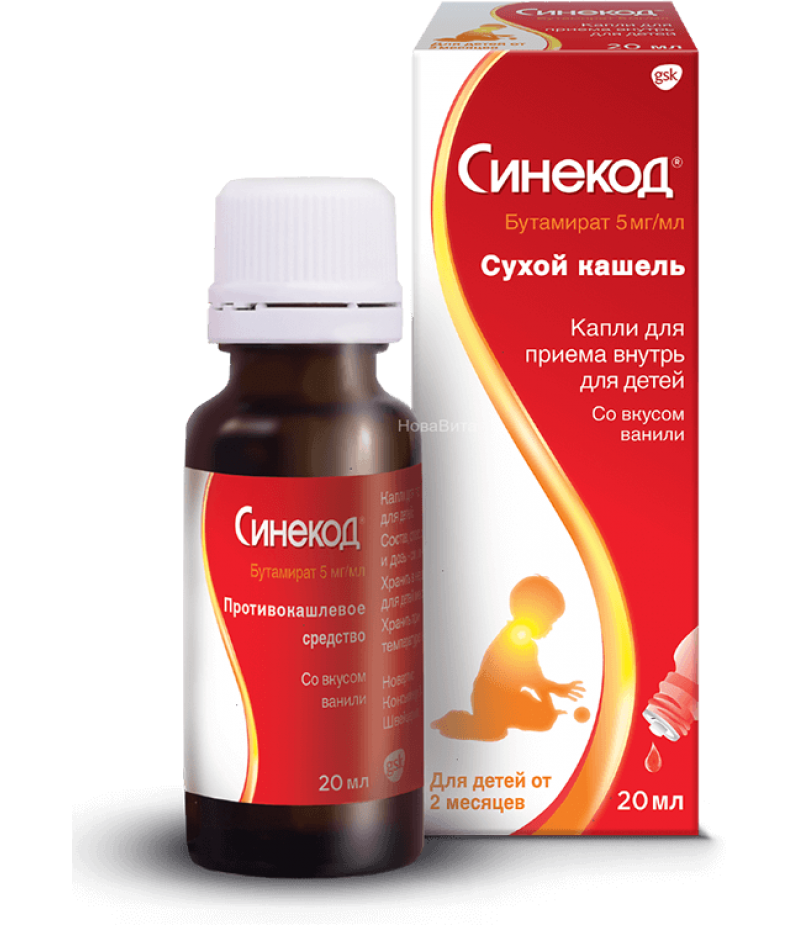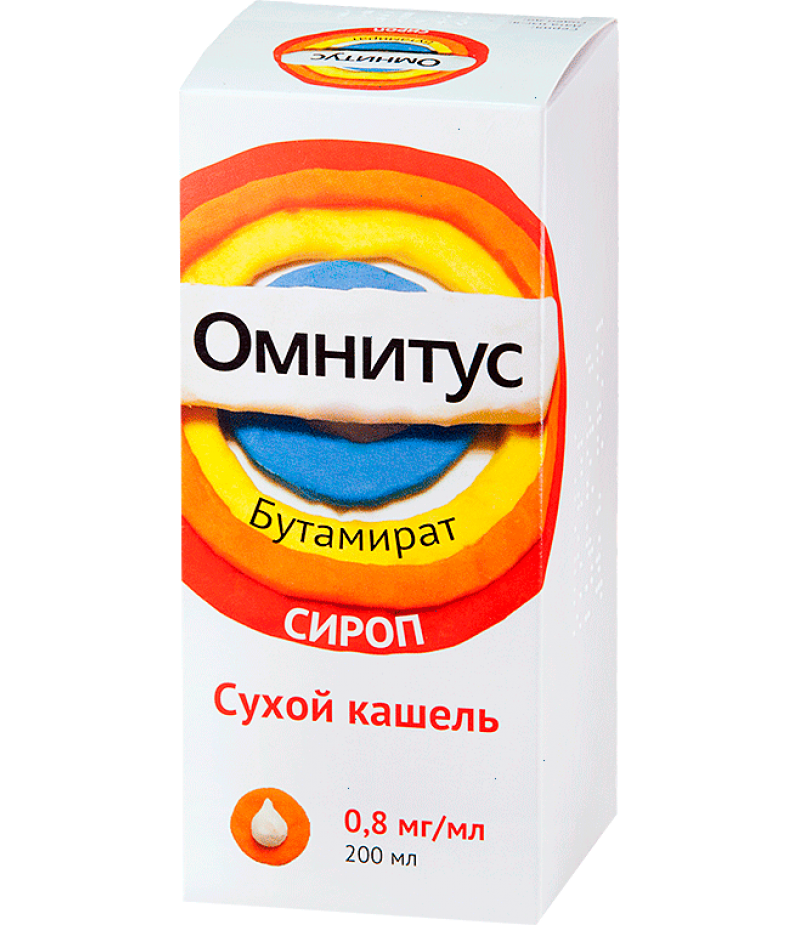Omnitus tabs 50mg #10
- $12.83
- 3 or more $12.61
- Availability:In Stock
Instruction for OmnitusReed more and buy Omnitus hereCompositionOne Omnitus tablet contains 20 or 50 mg of citrate butramate and such inactive excipients as lactose monohydrate, hypromellose, magnesium stearate, talc, colloidal an..
Tags: tabs
Instruction for Omnitus
Reed more and buy Omnitus here
Composition
One Omnitus tablet contains 20 or 50 mg of citrate butramate and such inactive excipients as lactose monohydrate, hypromellose, magnesium stearate, talc, colloidal anhydrous silicon dioxide, povidone. The film sheath includes: ethylcellulose, hypromellose, talc, macrogol, titanium dioxide and yellow dye E110 "Sunset Sunset".
In 1 ml of syrup there are 0.8 mg of citrate butramate and auxiliary inactive substances: non-crystallizing sorbitol 70%, glycerol, sodium saccharinate, benzoic acid, anise oil, vanillin, ethanol 96% sodium hydroxide and distilled water.
Form of issue
Omnitus is available in modified release tablets in a film shell with a dosage of active ingredient 20 or 50 mg, yellow or orange, round biconvex shape, and also in the form of a syrup.
Tablets are packed in blisters of PVC or aluminum for 10 pieces, in a cardboard bundle there is 1 blister, while the syrup is sold in 200 ml vials made of dark glass plugged with a plastic lid and having control of the first autopsy.
The syrup is completed with a measuring spoon for 5 ml, having a risk of 2.5 ml. In one carton - 1 bottle.
pharmachologic effect
Has anti-inflammatory, bronchodilating, antitussive and expectorant effect.
Pharmacodynamics and pharmacokinetics
Omnitus is an antitussive drug of central action. The active substance has no chemical or pharmacological similarity with opiates and acts directly on the cough center, which has an expectorant, moderate bronchodilating and anti-inflammatory effect, improves spirometry (external respiration tests) and oxygenation of the blood.
Pharmacokinetics
Absorption is high. The intake of 150 mg of syrup is capable of causing a maximum concentration in the plasma of the main metabolite - 2-phenylbutyric acid in 90 minutes - 6.4 μg / ml, tablets 50 mg - after 9 hours - 1.4 μg / ml.
Metabolism: hydrolyzed in plasma to 2-phenylbutyric acid and diethylaminoethoxy ethanol. They then bind to plasma proteins, then the main metabolite undergoes oxidation. The drug does not accumulate in the body.
The half-life of butyrate citrate with the intake of syrup is 6 hours, with the taking of tablets 50 mg - 13 hours. Excretion takes place through the kidneys. Acid metabolites are eliminated primarily as glucuronides.
Indications for use
Dry cough of any origin, including arising from colds, whooping cough or flu.
Suppression of cough in the pre- or postoperative period, for surgical interventions and bronchoscopy.
Contraindications
breast-feeding;
hypersensitivity to any component included in the drug;
pregnancy;
up to 6 years Omnitus is contraindicated in tablets of 20 mg;
The dosage of 50 mg is contraindicated in persons under the age of 18 years.
Unlike tablets, syrup can not be used only in the first trimester of pregnancy and children under 3 years of age.
Side effects
Concerning the digestive system: nausea and diarrhea may occur.
Among the other side effects, the following reactions of the organism were noted: dizziness, exanthema and various manifestations of an allergic reaction.
Instructions for use of Omnitus (Method and dosage)
The drug should be taken inside, not liquid, before eating.
According to the instructions for the use of Omnitus tablets, their use depends on the age of the patient:
20 mg - adults should take 2 tablets each. 2 or 3 times a day, patients of the age category 6-12 years are prescribed 1 table. twice a day, from 12 years to 1 tablet three times a day;
50 mg - adults are advised to take 1 tablet every 8-12 hours.
Instructions for the use of Omnitus syrup involves the use of a measuring spoon for 5 ml. Dosage is not the same for different age categories:
adults and elderly people - 30 ml (corresponds to 6 measuring spoons) 3 times during the day;
from 9 years (weight of the child 40 kg) - 15 ml (corresponds to 3 measuring spoons) 4 times during the day;
6-9 years (weight 22-30 kg) - 15 ml (corresponds to 3 measuring spoons) 3 times during the day;
3-6 years (weight 15-22 kg) - 10 ml (corresponds to 2 measuring spoons) 3 times during the day.
Overdose
Overdosage is manifested by the following symptoms: nausea, accompanied by vomiting, diarrhea, as well as dizziness or drowsiness, lowering of arterial blood pressure.
As the treatment is prescribed inside activated charcoal, laxative and, if necessary, recommended symptomatic therapy.
Interaction
At the moment, the drug interaction with butamirate is not described.
Terms of sale
To buy Omnitus, the prescription is not necessary.
Storage conditions
In a dry, dark place. The temperature is 15-25 ° Celsius.
Attention! For the safety of your children, store the drug in an inaccessible place.
Shelf life
Tablets are suitable for two years from the date of release, and syrup is five years.
special instructions
The standard single dose of 10 ml syrup contains 0.03 ml of ethanol, which should be taken into account when prescribing the drug to patients with liver or brain diseases, alcoholism, epilepsy, since treatment may pose a health hazard.
When treating Omnitus should not prescribe drugs that can depress the central nervous system, for example: tranquilizers, sleeping pills, antipsychotic drugs. In addition, patients should be deterred from drinking alcohol.
Reviews about Omnitus
Numerous Reviews of Omnitus tablets as an antitussive drug testify to the effectiveness, relevance and availability of this drug. However, many apply it in a complex and note some negative aspects, saying as follows:
"Helps, stopped drinking - again there was a cough," "Why do drugs need dyes? From them only harm. "
Reviews about syrup are positive, many like its pleasant smell and taste, the ability to use children, affordable price.



